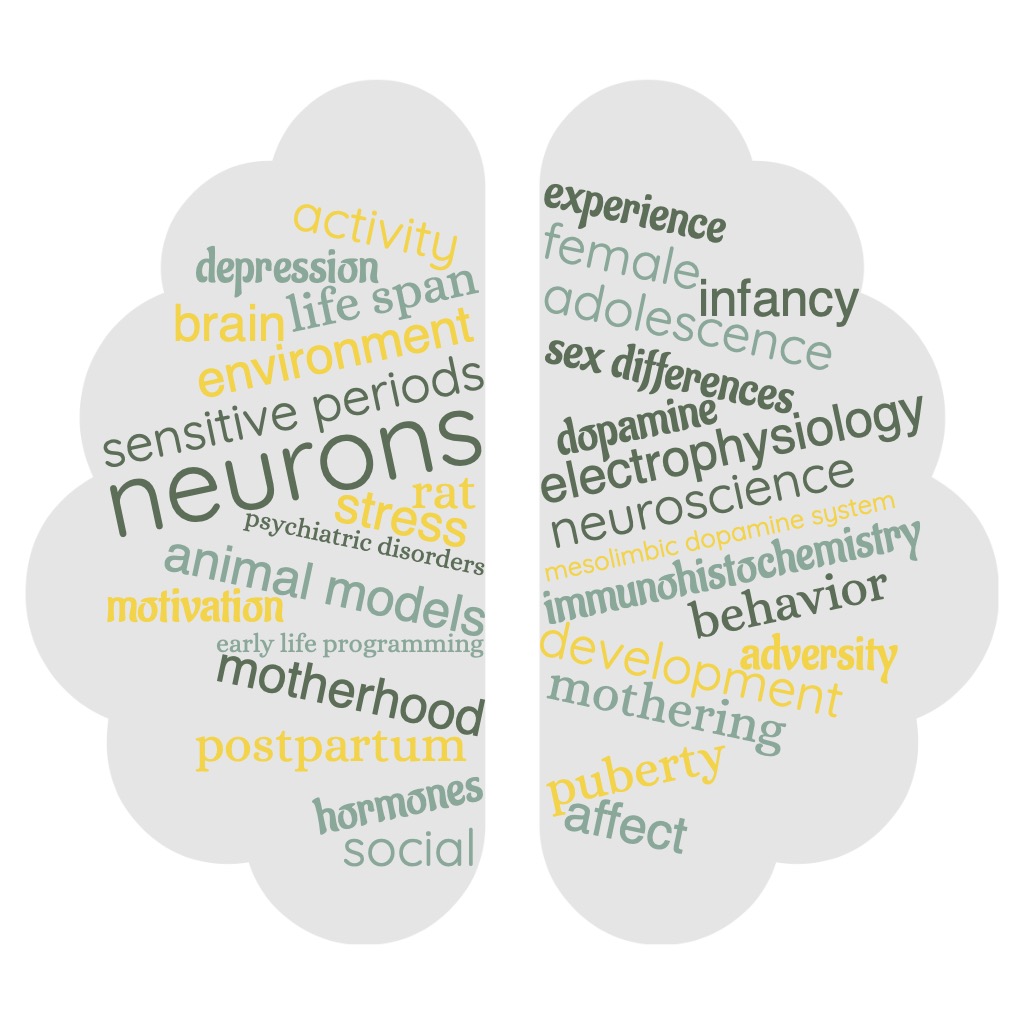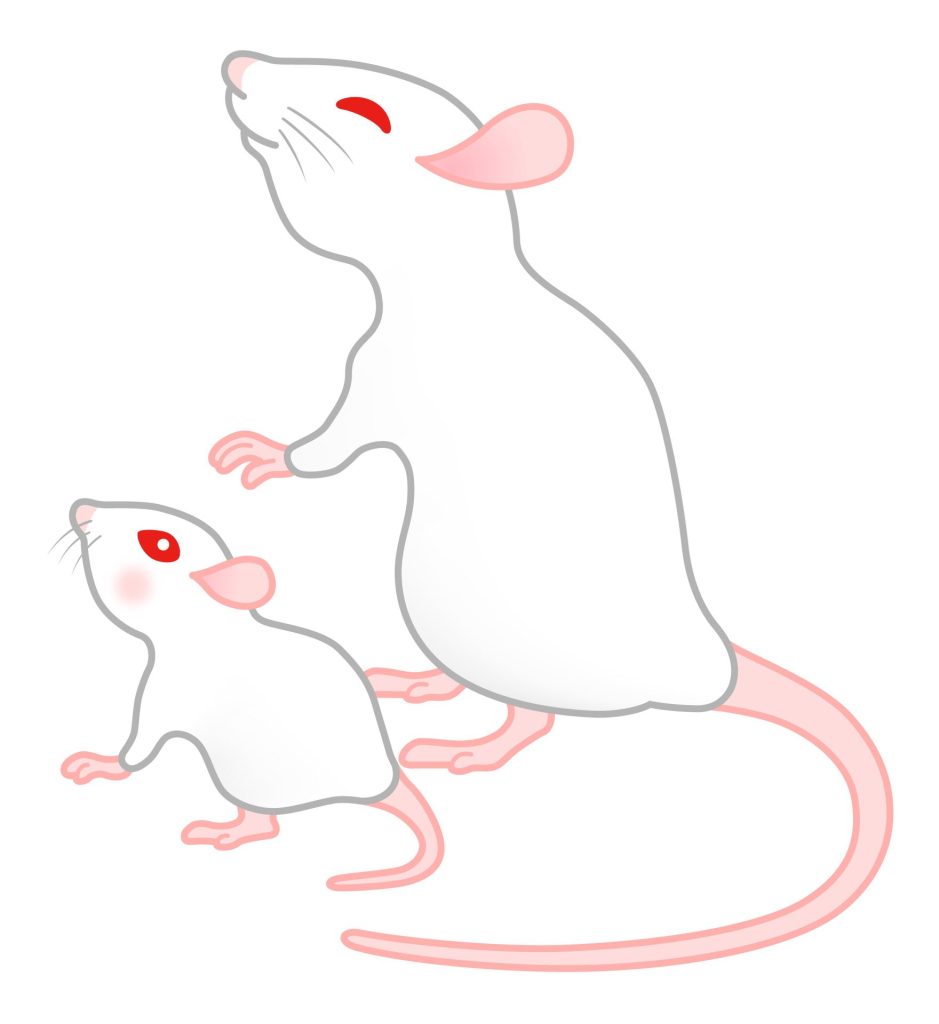Experience-Dependent Plasticity of the Mesolimbic Reward System

The Rincón-Cortés lab is broadly interested in studying how distinct types of experiences and environments influence affective/motivational behavioral processes and induce adaptations within the brain’s reward circuitry- also known as the mesolimbic dopamine system. We are particularly interested in determining whether adversity effects on brain and behavior are age and/or sex-dependent as well as finding ways to reduce the negative impact of adversity on both mother and offspring.

Why MADRE lab?
MADRE is an acronym that incorporates the first letters of our areas of major focus:
M- Maternal/Motherhood
A- Adversity
D- Development
R- Reward
E- Environment/Experience
“Madre” is also the Spanish word for “Mother”. This is relevant to our research program since many of the ways we model adversity are based on changing the rat dam’s environment, thereby causing changes in maternal behavior that have detrimental effects on offspring development.
Our current research program is based on 3 focus areas and seeks to address the following big picture questions:
1. How does becoming a mother change reward-related brain function and how do these normative changes interact with postpartum adversity?
This project is funded by a K01 from the NIMH.
2. How do early life experiences with a caregiver program later life maternal behavior?
This project is funded by an R03 from the NICHD.
3. How does developmental stress exposure alter brain development and reward-related responses?
We are actively seeking funding for this project and getting it off the ground with my startup.
